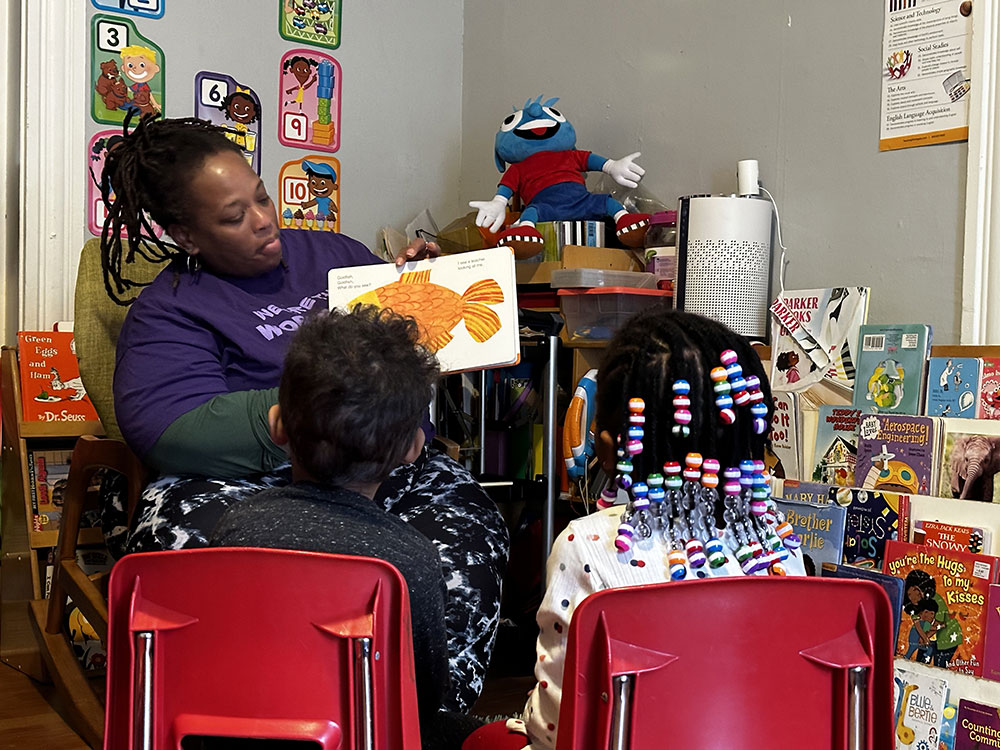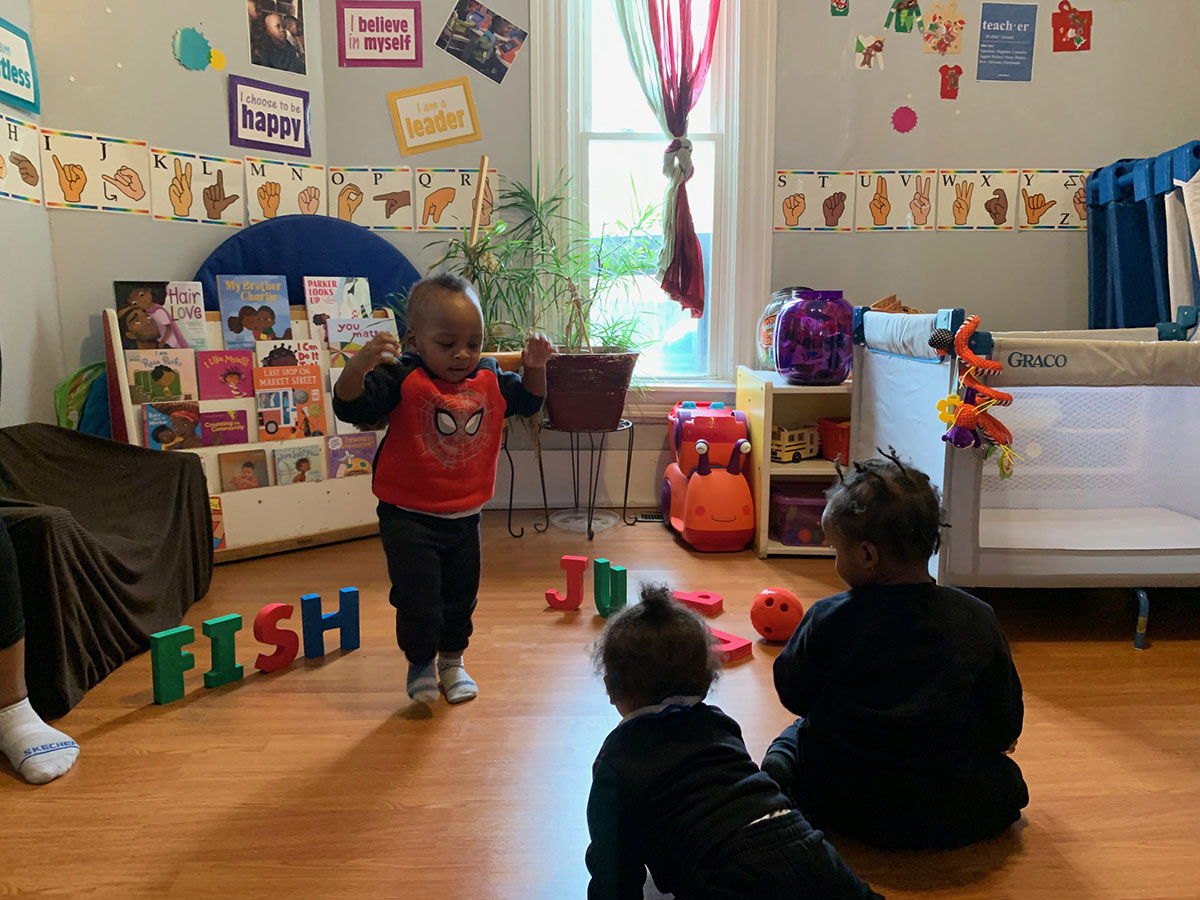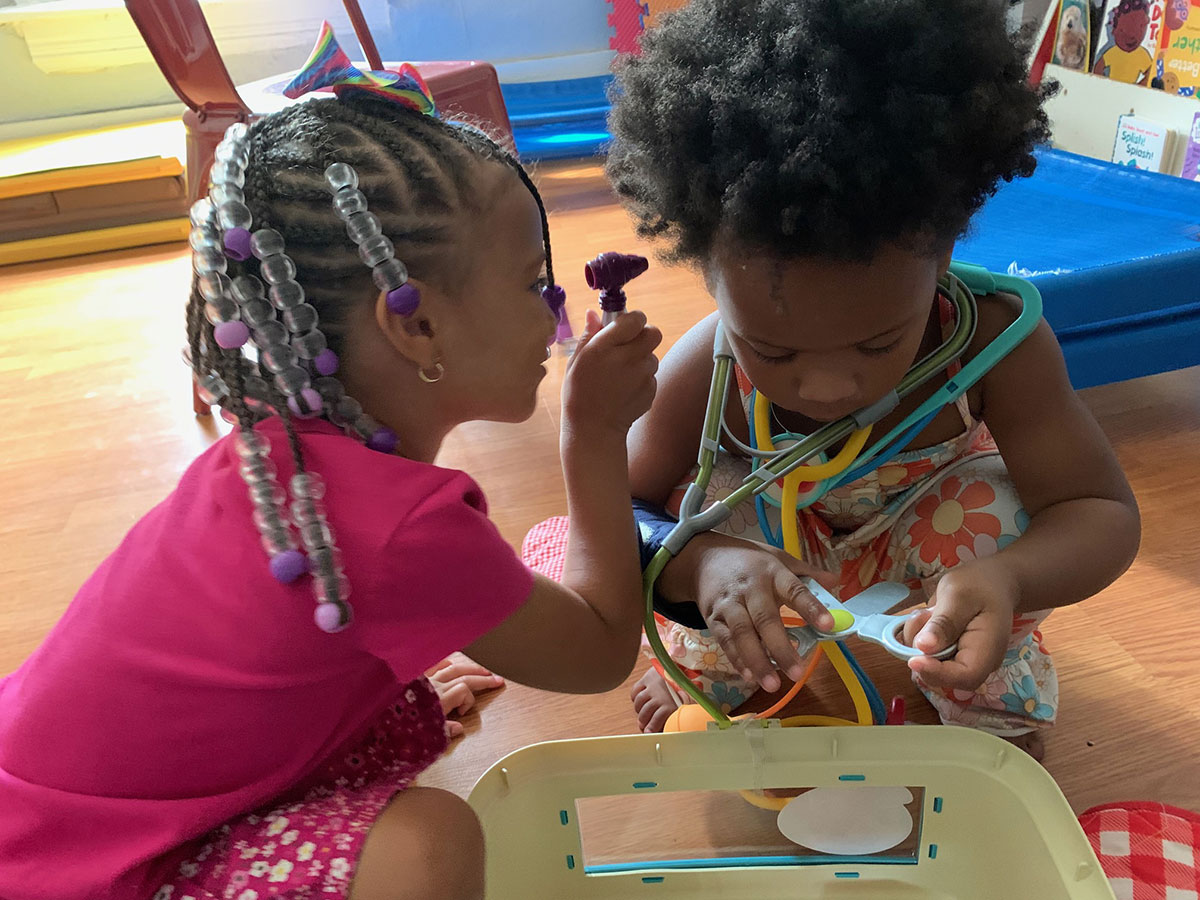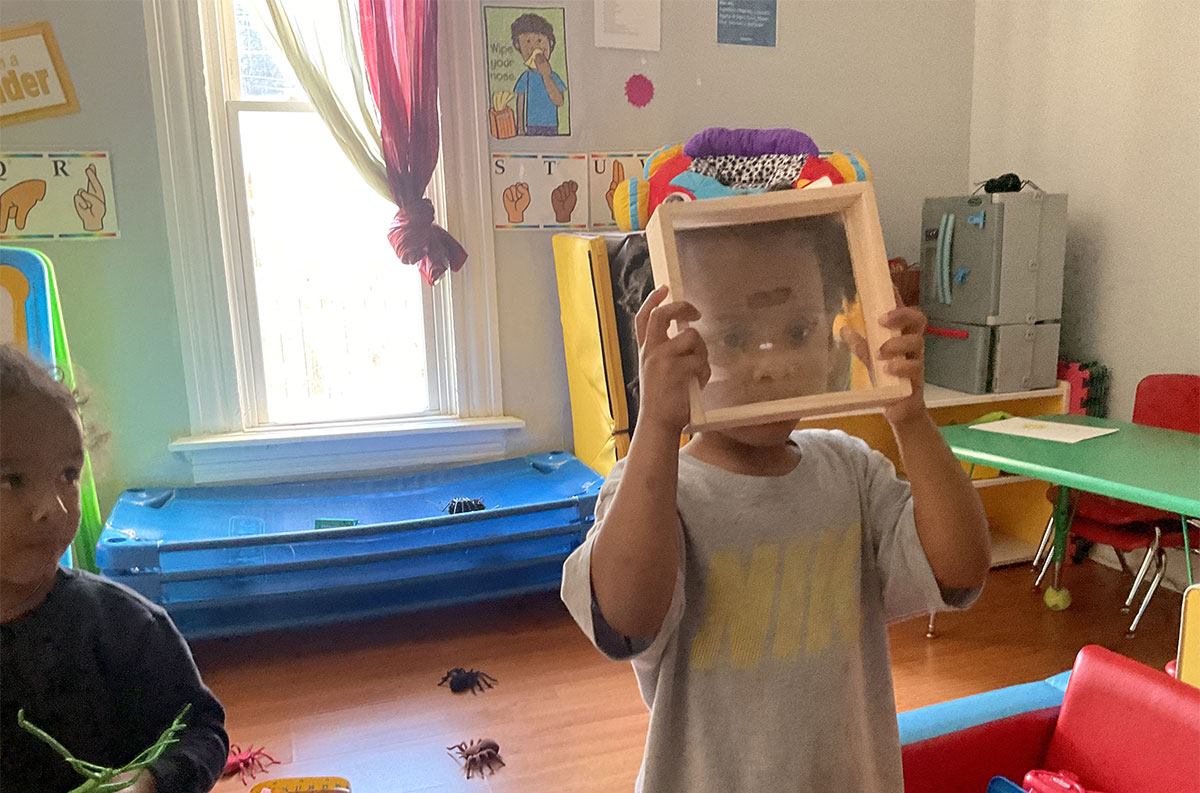Written by Eboni Delaney, Interim Director of Policy and Movement Building, NAFCC

“We Are the Ones We’ve Been Waiting For”
When Trina D. Averette says, “We are the ones we’ve been waiting for,” the words don’t come from a place of theory — they rise from lived experience.
For nearly three decades, Trina has opened her home to other people’s children, transforming her living space into something sacred: a place where laughter, learning, and love coexist. Her mornings begin not with a commute but with a quiet breath before the first knock on the door, a reminder that her work is more than a job. It’s a calling.
In Columbus, Ohio, where she runs The Foundation for Creative Life, Trina is known as a nurturer, a teacher, and an advocate. “Every morning when we open our doors, we offer a priceless gift,” she said. “We welcome families and children into our homes, creating safe spaces filled with love, learning, and care. Family child care educators are the heartbeat of our communities. We give families stability, children strong foundations, and our neighborhoods connection.”
That heartbeat, though steady, is under strain.

Ohio’s early care landscape is shifting. Recent state budget changes have redrawn what “care” looks like on paper — introducing new funding structures, redefining part-time attendance, and increasing the number of children that home-based providers can serve. What might seem like small adjustments in policy translate into large burdens in practice.
Children attending between 25 and 33 hours a week are now classified as part-time, which means educators like Trina receive less reimbursement for the same effort and attention. Meanwhile, group sizes have increased from six to seven in Type B homes and from twelve to fourteen in Type A homes — but without additional support or compensation.
“We’re being asked to do more work for the same or even less pay,” Trina said, her tone steady but firm. “We’re also managing expectations and regulations that don’t reflect the realities of family child care. At this stage in my journey, and in the spirit of Fannie Lou Hamer, I am sick and tired of being sick and tired, but even more determined to keep fighting.”
Across the country, educators echo her frustration. NAFCC’s 2024–2025 Annual Survey paints a picture of a system on edge: reimbursement delays, rising costs, and bureaucratic barriers that make sustainability nearly impossible. For many, one missed payment or policy shift can mean the end of a business. And when those doors close, families lose trust, consistency, and connection, not just a service.

For Trina, this struggle isn’t theoretical. It’s personal.
Nearly thirty years ago, in Chicago, Illinois, she began this work inspired by her son, who was born with special needs. “I wanted him, and every child, to have a place where they could learn, grow, and feel seen,” she said. That desire became the foundation of her life’s work. “In Chicago, we had higher ratios and a more supportive relationship with licensing — one that felt focused on helping providers succeed. Those early experiences shaped how I saw what was possible. I know what happens when systems respect and empower educators.”
That sense of what’s possible has guided her ever since.

Today, Trina continues her mission in Columbus, not only as an educator but also as a NAFCC State Representative, advocating for those whose voices are often unheard. She works to ensure that the challenges of family child care are seen as community issues, not just individual ones.
“When rates are cut, payments delayed, or policies change overnight, it affects not only our businesses but also the stability of the families we serve,” she said. “I know that pain personally. Years ago, I lost my home because of delayed payments and denied parent cases. That experience still drives me to speak up.”
Her story mirrors the findings of NAFCC’s 2024 Housing Report, which shows how financial instability and housing insecurity often intersect family child care educators. Zoning laws, payment delays, and a lack of housing protections have forced many to relocate or close completely. The ripple effect impacts children, parents, and entire communities.
“Family child care is essential infrastructure,” Trina said. “We are small businesses, educators, and caregivers. We do the work that holds communities together. Change is possible, but it takes all of us using our voices.” Her words land softly, but they carry the weight of conviction.
Trina’s story, like many others, is one of resilience, rooted in the belief that progress starts at the ground level, with those who care enough to keep showing up. It’s the story of someone who has seen systems fail but keeps building anyway, one child, one family, one morning at a time.
And in that persistence lies the quiet strength of her message — that the wait for change ends when people like her decide it’s time to act.
As she reminds us, “We are the ones we’ve been waiting for.”





